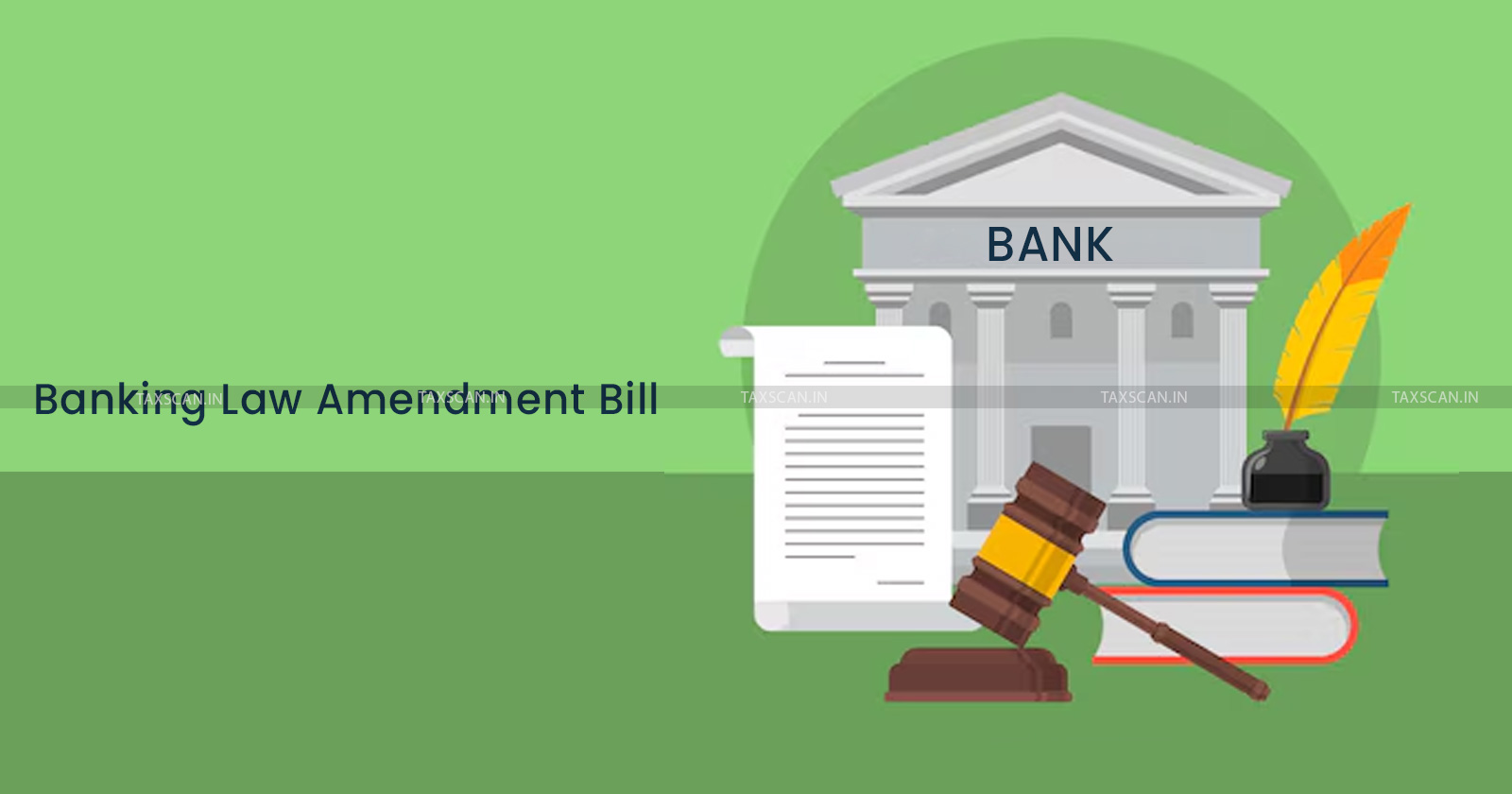Rajya Sabha Approves Banking Law Amendment Bill: Up to Four Nominees Allowed for Bank Accounts, FDs
Parliament passes the Banking Laws (Amendment) Bill, allowing up to four nominees per bank account and introducing key reforms in cooperative banking, audit norms

Banking Law Amendment Bill – Bank account nominee limit 2025 – Taxscan
Banking Law Amendment Bill – Bank account nominee limit 2025 – Taxscan
Parliament on Wednesday passed the Banking Laws (Amendment) Bill, 2024, enabling individuals to nominate up to four persons for a single bank account. The legislation was approved by the Rajya Sabha through a voice vote, following earlier clearance by the Lok Sabha.
The Bill is now set to become law, marking a key reform in the banking and financial services landscape.
Become PF & ESIC Pro: Basic to Advance Course - Enroll Today
Highlights of the Amendment:
Multiple Nominees for Bank Accounts: The amendment allows bank account holders to nominate up to four individuals for a single account. This provision applies to both cash and fixed deposit accounts, with the ability to assign specific shares of the account to each nominee.
Simultaneous Nomination for Lockers: While simultaneous nominations will now be permitted for cash and fixed deposits, only simultaneous nomination (without separate proportions) will be allowed for locker accounts.
Alignment with Other Financial Products: These changes align bank accounts with practices already in place in insurance policies and other financial instruments, where multiple nominees are allowed.
Read More: WhatsApp Messages revealed ₹200 crore Tax Evasion: FM responds to Privacy Concerns
Know Practical Aspects of Tax Planning, Click Here
Broader Legislative Changes:
Redefinition of ‘Substantial Interest’: The bill raises the threshold for what constitutes a substantial interest in a banking company from Rs. 5 lakh to Rs. 2 crore, modernizing a limit that was set nearly six decades ago.
Changes for Cooperative Banks: The tenure of directors (excluding chairman and whole-time directors) in cooperative banks has been extended from 8 years to 10 years, aligning with the 97th Constitutional Amendment. It also allows a director of a Central Cooperative Bank to serve on the board of a State Cooperative Bank, facilitating better governance across tiers.
Banking Compliance Simplification: The bill redefines reporting dates for banks from the second and fourth Fridays to the 15th and last day of every month, improving regulatory coordination.
Auditor Remuneration Flexibility: Banks will now have more autonomy in deciding the remuneration of statutory auditors, offering flexibility within governance frameworks.
Read More: Last Chance to Correct Your Taxes: File Updated ITR by March 31, 2025 to Avoid Higher Penalties
Government’s Stance on NPAs and Financial Health:
Replying to the debate in the Rajya Sabha, Finance Minister Nirmala Sitharaman revealed that the Enforcement Directorate has pursued 912 bank fraud-related cases in the past five years, including those involving wilful defaulters.
Responding to concerns raised by opposition members about write-offs, Sitharaman clarified, “Write-offs do not mean waiving off loans,” and confirmed that recovery efforts continue even after a loan is written off.
How to Audit Public Charitable Trusts under the Income Tax Act Click Here
Read More: Finance Bill, 2025 Notifies Major Amendments in Chapter XIV-B of Income-Tax Act 1961 [Read Bill]
She also announced that public sector banks recorded their highest-ever profit of Rs. 1.41 lakh crore in the last fiscal year and expressed optimism that profitability will continue to rise in 2025–26.
The Finance Minister stated that the bill is unique in its scope, as it brings amendments across five different banking laws. Eight dedicated teams worked to draft the provisions in line with the objectives set in the Union Budget speech.
Support our journalism by subscribing to Taxscan premium. Follow us on Telegram for quick updates


